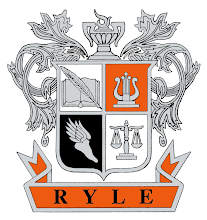Synthetic marijuana or synthetic pot is quickly becoming a major health concern for youths and adults. Attached below are excerpts from several articles on the spreading problem posed by synthetic marijuana.
Owensboro officials want businesses to stop selling synthetic marijuana
by the Associated Press
OWENSBORO, Ky. — Officials in Owensboro are trying to find the best way to rid the western Kentucky city of synthetic marijuana.
The City Commission on Tuesday decided to ask the Owensboro-Daviess County Steering Committee for a Drug and Alcohol Addiction Free Community to come up with recommendations to get the product off store shelves, the Messenger-Inquirer reported (http://bit.ly/v82v1I ).
The issue came up during the commission's monthly work session. Commissioner Roger Stacy said residents should boycott stores that sell synthetic marijuana until the product is removed. He said residents should tell the stores that sell it, "until that comes off your counter, your hose won't go in my gas tank."
Stacy said the product is easy to buy and inexpensive. He said he paid $12.95 on Monday for a packet of strawberry-flavored K3.
City Attorney Ed Ray said synthetic marijuana is actually spices sprayed with a psychotropic compound that changes regularly to stay ahead of new laws. He says the product is labeled as incense and marked "not for human consumption" under such names as K2 and Spice.
"The bottom line is it's killing kids in America," Ray said. "It's dangerous."
Commissioner Jeff Sanford said he received a call recently from a woman whose son and another boy were treated in the hospital after overdosing on the product.
"I want this stuff out of our city," he said. "It's all about profit." . . .
Comprehensive synthetic drug bans in works
by the Ky Enquirer
FLORENCE - Use of synthetic drugs spread fast across Kentucky and Ohio, and both states have created laws to make them illegal, with varying success. The latest law, in Ohio, takes effect Oct. 17.
"In 2010 we first started hearing about these synthetic marijuanas down around the Fort Campbell area, some in Lexington and Louisville," said Van Ingram, executive director for the Kentucky Office of Drug Control Policy.
Earlier this year, "We began to learn about what was being called bath salts, which was really a drug to mimic cocaine or methamphetamine," he said.
Those have been known by the innocent-sounding names, dove, or bath salts, and those were banned in Kentucky earlier this year.
Officials also have learned about something known as "plant food," a synthetic drug that mimics the effects of Ecstasy. More recently there have been newer versions of synthetic marijuana, which skirt around the prior chemicals that state law has banned. Updated versions of bath salts also are rumored to be coming.
Kentucky banned the specific chemicals in laws that tried to strike out the synthetic versions, Ingram said. But manufacturers have been quick to adapt by using similar compounds not covered by a ban. Ohio hopes its tactic of banning a broader category of chemical derivatives will avoid the cat-and-mouse process Kentucky has experienced. Ohio's law bans synthetic marijuanas and such materials as bath salts.
"Illicit synthetic drug manufacturers have figured out that substances often are defined as illegal by very specific state statutes," said Kenton County Commonwealth's Attorney Rob Sanders. "And if their chemists can find a way to produce the same effect as the illegal substance using similar substances, they go outside the legal definition, and they can avoid prosecution because the synthetic substance they produce doesn't meet the legal definition of the substances that are actually illegal."
Some products now being sold in Ohio contain messages like, "This product does NOT contain: jwh-015, jwh-018" and 10 other similar-looking names, or the notation: "DEA compliant," meaning they were not made illegal by a March 1 national ban by the Drug Enforcement Administration. State laws are needed as well because often federal agents go after distributors while local police, using state laws, typically are the ones who charge users with possession.
Officials believe most of the products are imported.
Ingram said Kentucky likely will try to ban larger classes of drug derivatives when the legislature meets for a full session: "Honestly, we're working on coming up with some language that would keep us from having to constantly re-identify these chemicals," he said. "If we can come up with generic language that will cover all of it, that will handle that," Ingram said.
More Than Half of Teens Use Chatbots for Schoolwork, Survey Finds
-
A new study from the Pew Research Center finds teenagers think
chatbot-assisted cheating has become “a regular feature of student life.”
18 minutes ago















No comments:
Post a Comment